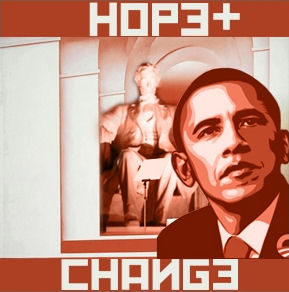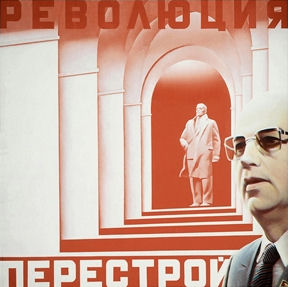Posted on Thursday 11 June 2009
Why the CIA Would Want to Hide May 2002 from Judge Hellerstein [and the ACLU]
By: emptywheel
June 11, 2009I’ve had a couple of really weedy posts examining the CIA’s response to the torture FOIA. And I wanted to pull back a bit, and explain what I think they might mean.
We’re getting all these documents because the CIA is trying to avoid being held in contempt for not revealing the now-destroyed torture tapes in a response to this FOIA in 2004. At that time, the CIA had to reveal the torture related documents held by its Inspector General or Office of General Counsel. When ACLU learned of the torture tape destruction, it argued that the tapes should have been included in that FOIA compliance and certainly should not have been destroyed. The CIA argued, though, that since the Inspector General had never physically had the tapes, they were not responsive to the original FOIA…
The CIA was hoping – it appears – that its narrative that the torture tapes portrayed waterboarding, and that’s the big reason they were sensitive, would distract Hellerstein and the ACLU and therefore allow them to hide a slew of other information: the success of the FBI before Abu Zubaydah’s torture started, the torture that started before the OLC opinions were written [and the White House’s intimate involvement in approving the earlier torture], the role of contractors in the torture, the quality of intelligence they got using persuasive interrogation as compared to the quality of intelligence they got using torture, whatever happened in al-Nashiri’s waterboarding that led them to stop and even admit it didn’t work with him, whatever happened to Abu Zubaydah around October 11, 2002 that led them to take a picture of him, and the Inspector General’s reconstruction of the Abu Zubaydah’s interrogation [which should have been turned over in the first FOIA]…
[big snip]
And so we get the Vaughn Index released the other day. Panetta’s declaration makes a couple of big new admissions: Contractors were present at the interrogations, and someone at NSC, rather than George Tenet, made this program a special access program. But the new materials continue to hide the following evidence that might support a contempt citation:
SHINY OBJECT!! WATERBOARDING!!!!
The CIA still wants to pretend this is all about waterboarding. But it is increasingly clear that it is about the things CIA did in May and June, the high level authorizations for it, the success of the FBI, and the completely false claims they used to later authorize their torture. The torture tapes were destroyed not because they showed OLC-authorized waterboarding. They were destroyed [among other reasons] because they proved that the foundation of our torture program was a lie. And the CIA is still trying to hide that fact from Judge Hellerstein.
During that year to year and a half, we’ve learned that our own government misbehaved in almost any dimension you might pick. Rather than rely on our existing agencies – the C.I.A., the D.o.D., the D.o.J. – the Executive Branch took them over and directed their activities – micromanaging each from the White House – specifically, the Office of the Vice President. It was a new meaning for the term, Commander in Chief. In their defense, it was certainly a tumultuous time and I’m sure the pressures were great. But as we learn more and more about their behavior, we would’ve been better off if they’d just taken the year off and gone to their ranches for a period of spiritual renewal.
Each new revelation seems to lead to a new deceit. Over the ensuing six years of the Iraq War, we’ve learned that the intelligence that warned of the al Qaeda attack was ignored. We’ve found out that the cause for the Iraq War was a lie. We’ve learned that we jettisoned the Geneva Conventions. Now, we’re learning that the illegal torture was part of the attempt to justify the illegal war. Above all, we’ve learned that the Executive perogative of classifying information was used extensively to evade the oversight that lies at the heart of the American Constitution. Rather than keeping secrets from our enemies, the Executive Branch kept secrets from Congress and the American people. The Department of Justice became their political arm, and the C.I.A. began to resemble the K.G.B. in Russia, a direct agent of the rulers rather than the intelligence gathering agency of the government. If that weren’t enough, the domestic functions of government – things like disaster relief, responsible fiscal policy, attention to our economy and our markets – fell to the wayside and our descent into an economic black hole went unattended until it was too late to do anything about it.



 The Obama administration is pulling back from some of its most ambitious ideas for overhauling the financial system, after determining that the consolidation of power under fewer federal agencies would face grave opposition by lawmakers and regulators, sources familiar with the discussions said.
The Obama administration is pulling back from some of its most ambitious ideas for overhauling the financial system, after determining that the consolidation of power under fewer federal agencies would face grave opposition by lawmakers and regulators, sources familiar with the discussions said. 

 While the big guys like the A.C.L.U. and C.R.E.W. certainly deserve credit for finally prying the information out of the government, anyone obsessed with these things knows that the next Pulitzer should go to emptywheel, the person who has tirelessly kept up with the documentation, parsed it into digestable bytes, and given it to us in a form we can almost understand. Here comes some more…
While the big guys like the A.C.L.U. and C.R.E.W. certainly deserve credit for finally prying the information out of the government, anyone obsessed with these things knows that the next Pulitzer should go to emptywheel, the person who has tirelessly kept up with the documentation, parsed it into digestable bytes, and given it to us in a form we can almost understand. Here comes some more… 
 As a practical matter, too, terrorists may lack much, but they have never lacked for grievances against the United States. Our belief in freedom of speech and religion … our belief in equal rights for women … our support for Israel … our cultural and political influence in the world – these are the true sources of resentment, all mixed in with the lies and conspiracy theories of the radical clerics. These recruitment tools were in vigorous use throughout the 1990s, and they were sufficient to motivate the 19 recruits who boarded those planes on September 11th, 2001…
As a practical matter, too, terrorists may lack much, but they have never lacked for grievances against the United States. Our belief in freedom of speech and religion … our belief in equal rights for women … our support for Israel … our cultural and political influence in the world – these are the true sources of resentment, all mixed in with the lies and conspiracy theories of the radical clerics. These recruitment tools were in vigorous use throughout the 1990s, and they were sufficient to motivate the 19 recruits who boarded those planes on September 11th, 2001… Former Soviet leader Mikhail Gorbachev called for a perestroika, or top-to-bottom reform, in the West, arguing that its current economic model was "unsustainable" and needed replacement. Commenting on the current global economic crisis, the ex-Soviet president who presided over the collapse of his country, said that it was now clear to him "that the new Western model was an illusion that benefited chiefly the very rich."
Former Soviet leader Mikhail Gorbachev called for a perestroika, or top-to-bottom reform, in the West, arguing that its current economic model was "unsustainable" and needed replacement. Commenting on the current global economic crisis, the ex-Soviet president who presided over the collapse of his country, said that it was now clear to him "that the new Western model was an illusion that benefited chiefly the very rich." Notice the graphic
Notice the graphic